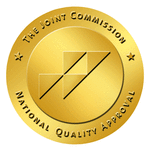When You Want Him/Her To Get Clean…
When my husband was going on a drug binge, everything stopped. You could hear the sound of a pin drop in my home while I awaited his call and his safe return. Mothers, fathers, cousins and friends from both our families would stop what they were doing. We all wanted to help my husband get home and get clean. We promised each other that we were on the same side and our goal was to get him help. When things were over we all went our separate ways and continued our personal relationships with the addict as they were before. We started exhibiting classic signs of enablers: I picked up the slack at home with our child, and other responsibilities; his mother kept telling him his addiction was not his fault but his father’s fault; his friends told him he would be fine, he just needed to slow down; and the addict continued to manipulate all of us, just as he did before.
What Is Enabling?
What are some examples of enabling behavior? Enabling is doing anything that directly or indirectly helps the addict be able to use drugs or alcohol. Examples: 1. If you give the addict money to pay a bill and they actually pay a bill, you are still enabling. If they were not using drugs, they probably would be able to pay their own bills. You are helping them be able to get high by enabling their irresponsibility. 2.If the addict gets kicked out of their home and has no place to go and you let them stay with you, you are enabling their addiction. 3. If you make excuses for their drug abuse like, “He had a rough childhood,” or, “He grew up without a father” or, “He was abused as a child,” then you are enabling. Even if we think we are helping an addict, sometimes this behavior can really be enabling. Instead of making him or her accountable for their actions you are blaming something else. This puts the addict in the position of victim and they will use this over and over again to play on your sympathies. So, how do you stop enabling?
Make It STOP!
If you are sticking to your boundaries with an addict and someone else in the family keeps posting bail or giving them money or food, then the addict still has a way to get high. An addict will most likely not stop using unless they have to. To STOP the enabling, you must break down its structure or the system that makes it possible. Each person involved in the addict’s life is a part of the enabling structure. When you start to take away pieces of the structure eventually the structure will fall. To empower the family you must destroy the current system that makes it possible for the addict to use. Here is what you need to know:
- This will not work unless everyone is on board.
- This will not work if we all say we are remaining strong but one of the family members is secretly helping the addict.
- There should be a set of rules and boundaries in regard to dealing with the addict.
- Everyone needs to be on the same page at all times.
- The first person to break the rules can shatter the progress made.
Realizing Your Part
As hard as it is, every friend and family member must express what they are doing to “help” the addict. You must identify those behaviors and how they are actually helping the addict get high. Once all of the information is out there, then you can set up rules for what appropriate interaction with the addict should be for everyone. For example, no one can provide a place to stay when the addict gets kicked out of their apartment. When talking to the addict on the phone, no one should engage in “victim-like” discussions allowing the addict to place blame for their drug abuse. The rules will help keep your family focused on the end goal; allow the addict to hit rock bottom. The more family and friends that are involved the better the outcome. Some loved ones may think this is hurting or abandoning the addict but you can discuss that end goal is sobriety and in the addict’s best interest.
Get Help
An intervention specialist, a family group therapist, Al-anon, and community support groups are available to help the family. I recommend finding an outside party or a motivated family member to head the initiative. It is helpful to have a go-to person to keep the family on track with knowing what is and what is not enabling behavior. Finally, I recommend that you read the article “Zero Tolerance for Drug Abuse: Lessons for Families” for helpful approaches to take with an addict. And leave any questions your have in the comments section below. I’ll do my best to respond to you ASAP.
By: Amanda Adruzzi
Photo Credit: Rupert Ganzer


 RSS Feed
RSS Feed
